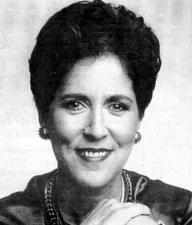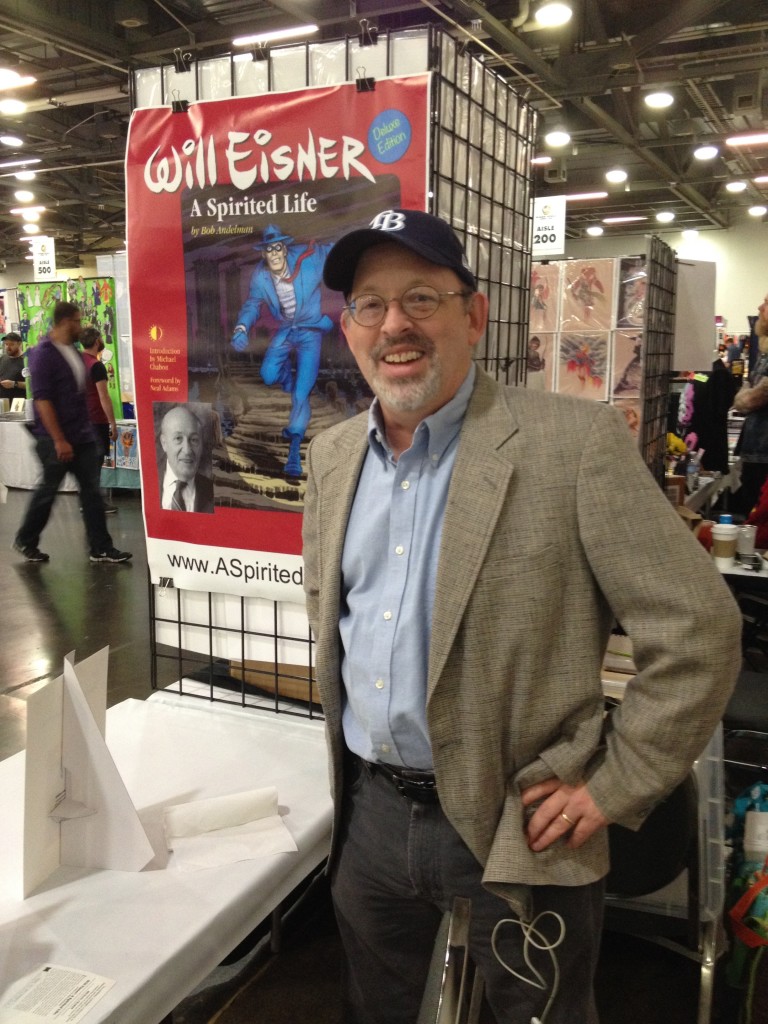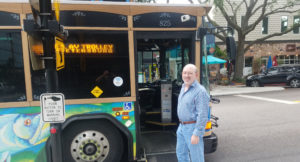(This interview with Tampa Mayor Sandy Freedman was recorded in March 1991 for the Maddux Report.)

Tampa Mayor Sandy Freedman
Sandy Freedman’s fingerprints are all over her city. In typical big city fashion, nothing of any significance happens in Tampa these days without the mayor’s nod of approval or hands-on contribution. It’s evident in the Tampa Convention Center — for which she had final approval of details down to the color scheme — and the arrival of the Tampa Bay Lightning hockey franchise, which she personally rallied the National Hockey League Board of Governors to award. She participated in the city’s successful efforts to lure Salomon Brothers to Tampa and pushed the coming Florida Aquarium from dream to reality.
The mayor — who won re-election in February with the support of a crushing 73 percent of the electorate — made a reputation for herself during his first term as what she calls a “facilitator,” someone with a knack for bringing parties to the table to work out their differences. It was her influence that broke down years of mistrust between Tampa and St. Petersburg and set the stage for such infant trans-bay organizations as the Tampa Bay Partnership and the Tampa Bay Congress of Chambers of Commerce. She went to St. Petersburg to meet with the National League Expansion Committee in February and express the entire Tampa Bay area’s support for a baseball franchise in the Florida Suncoast Dome.
She says her early days in the office were awkward as city staff and business leaders struggled to adapt to not just Tampa’s first woman chief executive but to a mayor decidedly different in style and execution from her predecessor, Bob Martinez.
Still, however, she is a lioness searching for a voice, as her quiet asmidst the racial storm of the cancelled Gasparilla invasion and parade demonstrated. It was the perfect episode for the mayor of harmony to take a stand and be heard, yet she was largely silent, preferring to stay in the background.
Freedman talked with the Maddux Report for an hour in her city hall office in April, the day after she was sworn in for her second term.
MADDUX REPORT: You were re-elected by a landslide, probably making you the most powerful woman in Florida …
SANDY FREEDMAN: I never think about that. I hope I’m a good role-model for women. That’s the only way that comes into mind. It does say that women can be in executive positions, not just legislative position, that woman can lead and do well and have the support of the public as they’re doing it.
MR: What does it mean for Tampa that you did so well, that you established clearly that you are the mayor of all of Tampa?
SF: What it says is that people like the direction the city is in now, the direction we’ve taken these last four years and they want to continue along that course.
MR: What message did your victory sent to the citizens of Tampa and the city council in terms of your mandate and your ability to govern.
SF: One of the things I was interested in was winning big. Because there were an awful lot of things that I started and I wanted to continue. I think the margin lets everybody know that the public is supportive of those things and they want to keep ’em going, whether it’s the housing program or economic development. I hope they’re going to remember that as we move into new areas and that the public widely supported me. I might REMIND ’em on occasion. (She laughs.)
MR: You’re widely thought to be someone who’s low-key, a behind the scenes person, not a grab-’em-by-the-lapels mayor — almost a contradiction in a ‘strong mayor’ form of government.
SF: When you’re my size you can’t grab people by the lapels. (She laughs.) Kick ’em in the shins, maybe.
MR: What tops your agenda for the next four years?
SF: We will contine working on reducing crime in creative ways. It’s not just hiring more cops. The housing programs, which, of all the things I’ve done, I’m most proud of them. They’re really helping people. We’re going to continue them and fine-tune. We’re doing one pilot project, rebuilding and revitalizing, in effect, an entire neighborhood. If we make that one work, we’ll be able to take that model to other neighborhoods. I’m confident we’re going to get a convention hotel, but on terms the city can afford and handle, as opposed to someone else’s terms.
Hopefully some of the things that are the hardest to do — race relations, the arts — will be in better shape.
MR: How would you describe your style of governing?
SF: It’s a different style than this community is used to. And I think that’s why it’s was hard early on for some people to understand, even for some of the staff members. It was very different from the way Bob Martinez dealt.
I work in a very open way. People are in and out all day. It’s not a closed, inner circle and then another circle, as might have been the case in the past. Everybody has access to this office. It’s a very democratic kind of thing. Everybody shares their ideas, free-for-all. We don’t sit around a conference table; I’m not comfortable there. We kick around ideas and then I say okay, this is the way we’re going to do it. And everybody gets behind it.
I think it works. The people who work with me — I don’t think they’re scared out of me. They know I can be tough and I can be a taskmaster, but I don’t ask of them anything I don’t ask of myself.
It’s low-key, behind-the-scenes much of the time, non-traditional, maybe. There’s a lot of team building. We do some things out of the office, we socialize together. We spend more time together than we do with our families so we better like each other. There’s a lot of humor, a lot of laughter, a lot of kidding. There’s a great deal of camaraderie.
I get around a lot to the departments. If I need information, instead of asking them to come here, I go there. It helps for people to see me, to know I care about what they do. I probably know more people by name than any other mayor ever has. I like people. Maybe that’s the difference.
MR: You have been given credit for a number of things that have happened during the last four years — hockey, Salomon Brothers, the convention center, the Florida Aquarium. What do you think your contribution to these things has been?
SF: Often times I’m a facilitator. I take pride and some degree of credit in getting the convention center done on time and on budget. Every Wednesday morning I got a report on progress from the moment that project began to insure it came in on time and on budget. My credibility and the fortune of the city was at stake and I wasn’t going to let it get away from me.
Hockey, that was one of those once-in-a-lifetime kind of things. I’ve been given a lot of credit, but I think I just said, ‘Let’s pick up the pieces. You get the private financing and I’ll go down (to the NHL Board of Governors meetings at The Breakers in Palm Beach) and make the pitch for you.’ But I think they wanted to give Phil Esposito a franchise. There was an electricity when he walked in the room that is a very rare thing to see.
MR: There was a great picture of you holding a hockey stick over your head after the team was awarded …
SF: I hated that picture. Everybody else loved it. I guess it was because it was very different for me.
Women who started in politics a long time ago came along at a time when there were very few women involved in politics, when we really had to be smarter, be better, do more homework. At least we thought we did. We were held up to a microscope, much more so than the men who were elected. As a result of that, a lot of us developed what appears to be a level of intensity, much more thoughtful, less humorous, less frivolous. That has kind of carried over with me. That’s why it’s still hard for me to see myself with a hockey stick.
MR: What did Salomon Brothers ask of the city that the city could — and could not — deliver?
SF: They asked very little, quite honestly.
I think they knew the answers but in the early stages had to have discussions as to whether they could have tax incentives, tax abatements, the normal questions that everybody asks. I think they had well-researched this area and knew what the Florida Constitution allowed and also what it prohibited. They really didn’t ask much. They were very receptive to the few offers we made — the partnership school concept, which I took to them very late. They were very very enamored with the concept and they are going to be implementing it in conjunction with the Hillsborough County school system. We certainly offered to help facilitiate the process through permitting. Not to give them anything, but to help make sure that things move as quickly as possible. We’ve done that for others and will continue to do that.
I think they were most especially interested in the feel for the community, the receptivity to the top people who came down. They were interested in housing, the arts.
MR: Was there anything Salomon Brothers wanted that you just couldn’t give them?
SF: I don’t recall anything that ever came up that they said, ‘We have to have this,’ and we had to say no, we can’t provide it for you.
MR: You have maintained a very strong hand in negotiations for a convention center hotel, turning back some well-known, would-be developers. What were they asking for that the city can’t or won’t deliver?
SF: They’re asking more than we’re able to deliver or even want to deliver. I don’t think the city of Tampa — as interested as we are in getting a convention hotel in close proximity to the facility — should be in the convention hotel business. And some of the requests made of us have been to, in effect, own a piece of the rock. Not to own it, but we would have to put so much in, that in effect, we would be kinda partners even though we wouldn’t own it. I don’t want to do that, I don’t think the public wants that. There are certain things we can work with and they’ve been widely reported, from the parking situation — we’ve got a couple little parcels down there that might be part of the deal — and there’s a little bit of tax increment financing money, maybe some help with the meeting rooms. But owning half a hotel, in effect, is not what we’re going to do.
MR: Is there anything in particular holding up the process right now?
SF: I think the economy certainly hasn’t been in our favor. Land prices down there have been very, very high, although they seem to be coming down a little bit, which may help facilitate the deal.
I’m pretty confident that in the not too distant future we’re going to see something happen down there. I don’t have anything to announce — but there’s more interest in the last couple months than there was in the six months prior to that.
MR: You have made a mini-career of bringing together disparate groups and telling them to meet, talk among themselves and work together.
SF: I’m glad that I’ve been able to fill the facilitator’s role. It will mean more to me if those things become long-lasting. That’s one of the reasons why the way I operate is different. Some people say I should stand here, pound the desk and say, ‘THIS IS THE WAY IT’S GONNA BE!’ I don’t view that behavior as being for long-term progress. I think the community has to come together. I see my role as bringing those forces together for the long-term interest.
MR: Will Bob Ulrich’s decision to step aside as mayor of St. Petersburg interrupt the mood of cooperation across the bay?
SF: No. I think it’ll continue. David Fischer and his wife were at my swearing-in ceremony. Bob Ulrich was also there. That never would have happened four or five years ago.
I don’t know David Fischer at all, but I know of him and I’m real comfortable with him.
MR: Would you favor a Tampa BAY Sports Authority if a Major League Baseball team is awarded to St. Petersburg? What about a Tampa Bay United Way for the arts?
SF: I’m not sure I favor a Tampa Bay Sports Authority or a Tampa Bay United Way for the arts.
As much as I support regionalism, there are always going to be times — and there should be times — when we maintain our separate identities. Yes, we should work together on sports, but no, I don’t think we ought to have a Tampa Bay Sports Authority.
MR: How would you describe your relationship with the business community?
SF: I think I have a good relationship with the business community. There were times early on that maybe it wasn’t as good as it is now, but I think that was because I was somewhat unknown to them as a chief executive. My style is very different. I don’t just call a half-dozen people for advice. I call a LOT of people. And so I think there might have been some people who thought they were cut off.
I’m very supportive of good, sound economic development.
MR: Do you consider yourself and your administration pro-business?
SF: I think we’ve demonstrated that we are.
MR: What do you think of the Hillsborough County Commission’s proposal to establish its own economic development commission?
SF: I think it’s a mistake.
Government does some things very well and some things we don’t do very well. I think we need to acknowledge that. I don’t think this is an area government could do really well. We can help facilitate economic development, clearly, by our actions as well as our resources. But I think the Committee of One Hundred has done quite well; I think they can do better. There’s been a fragmentation of economic development with the proliferation of University North, the Parkway Association, Ybor City, downtown, Westshore — which hasn’t necessarily accrued to the benefit of the overall economic picture.
Personally I would hope there would be some pulling in of all of those in more of an umbrella effort, so that those resources that are expended in all of those areas might be more efficiently administered. But I don’t think it ought to be done by government.
MR: So you don’t favor the creation of another EDC.
SF: Absolutely not.
One of the frustrations (of the county commission) — and I have felt it myself — is as a public official you’re expected to know everything. And yet there’s an arena in which you can’t know everything. There’s a confidentiality when you’re dealing with corpprate relocations. Even as the mayor, I don’t know all the people or groups that we’re wooing. And I shouldn’t.
MR: There was probably one election issue that no one was happy with you about and that was your handling of Ye Mystic Krewe of Gasparilla. You were uncharacteristically silent about the Krewe’s unwillingness to take in blacks, women and minorities, seemingly unwilling to take sides, unwilling to alienate the black coalition or the white power brokers who make up the Krewe. In the meantime, as the sports world prepared to come to town for Super Bowl XXV, Tampa’s national image took a beating in the press. Was it a mistake to not be more outspoken?
SF: I don’t know that I was silent. I said the city wouldn’t participate any longer (in the Gasparilla parade) with our services, the policemen, clean-up and everything else.
I’ve thought that one through dozens, hundreds of times probably by now. What could I have done differently, what would have been better? And I haven’t figured it out yet. I worked from day one behind the scenes, trying to bring the parties together, trying to get the Krewe to integrate, trying to make order rise from chaos and (Tampa received) a black eye, a nationwide black eye. But I don’t know what could have done differently.
MR: Did you not get a sense that people on both sides were waiting for you to come out on one side or the other?
SF: Yeah, yeah. But either way was a losing proposition. I think it was handled poorly all the way around from a public relations standpoint. I tried very hard to get that moderation between all the folks that were involved. I’m not sure that I could have handled it any better; perhaps if others had reduced the rhetoric and maybe belayed their actions … It was a painful thing. But sometimes, no pain, no gain. We’re gonna be a stronger community as a result of it.
MR: Will Gasparilla return to the city?
SF: We’ll have to wait and see.
MR: And if it does, will the city be involved with the Krewe?
SF: If the Krewe wants to put on a parade with the support of the city, then it’s going to have to be an inclusive organization.
MR: Cecil Edge said your fingerprints are on every downtown building built in the last four years and every building that will rise for the next four years. (The mayor laughs.) Do you have a clear vision for downtown?
SF: I think I have a pretty good vision for downtown. We put together the downtown plan to help articulate that vision. That’s to give everybody guidelines, to put everybody on a level playing field.
I have a vision. I’d like to see the waterfront very people-oriented. I would not like to see it walled-in with high-rise buildings where you couldn’t see the water or there was no green space. I think we have had the last of our buildings that is going to be concrete and steel, sidewalk to sidewalk. I hope we have. I think there’s going to be public art in downtown. I hope we will attract more retail and housing. Those are tricky, very tough. I hope the architecture will be architecture people will view in and of itself. Good architecture doesn’t cost more money.
MR: What will drive the Tampa Bay market in the next decade?
SF: I think we’re learning that we’ve got to have more homegrown. The SRI study proves that to be a reality. There aren’t that many corporate relocations out there. The real value-added is going to come from within and it should. We ought to have an environment that can nurture that.
MR: Your predecessor used this office to leap first into the governor’s mansion and now the president’s cabinet. What’s ahead for you?
SF: I get asked that question at least once a day. I don’t know what’s ahead. My schooling, my degree, was in local government. I get a great deal of reward and personal satisfaction from what I do. It’s probably a good thing that I can only serve two terms. But who knows? Maybe if there wasn’t a charter revision, maybe I’d want to keep on going. There’s a lot to do in this community and a lot I’d like to be involved with.
end
Tampa Bay Times calls Stadium For Rent (Second Edition) “Notable” for 2015 baseball season!



